Hello and happy Saturday. There was a bit of a theme to the week’s biggest news stories: deals. Tariff deals, investment deals, ethically and legally questionable deals—a veritable buffet. Let’s dive in.
On Monday, the U.S. and China announced a temporary tariff reduction, walking back duties that had led to decreased activity at West Coast ports and factory closures in China. The U.S. dropped its tariffs on Chinese goods from 145 percent to 30 percent, and China dropped its from 125 percent to 10 percent. As we noted in The Morning Dispatch, most experts are calling it a win for China: “This is another signal to China that we’re not serious,” Derek Scissors, senior fellow at the American Enterprise Institute, told TMD.
On Tuesday, President Donald Trump kicked off the first official state trip of his second term in Saudi Arabia (he also attended Pope Francis’ funeral in April). Riyadh was the first of three stops, as he also visited Qatar and the United Arab Emirates. In Saudi Arabia, he announced a commitment by the Saudis to invest hundreds of billions of dollars in the United States; in Qatar, it was an arms package worth $200 billion; in the UAE, it was a series of commercial partnerships including a $14.5 billion deal for Etihad Airlines to purchase Boeing jets. But those weren’t the deals that everyone was talking about.
Days before Trump departed, ABC News reported that the Qatari royal family planned to give the United States a $400 million luxury Boeing 747-8—and that Trump was prepared to accept it. While the plane would be gifted to the Defense Department, specifically the Air Force for the president to use as Air Force One, it would be transferred to Trump’s presidential library when he leaves office. The report prompted immediate outcry about corruption, and critics were not assuaged by the fact that Attorney General Pam Bondi—who made $115,000 a month as a lobbyist representing Qatar before and after a temporary stint in the first Trump administration—signed a letter saying the gift was legally permissable.
As Nick Catoggio noted in Boiling Frogs (🔒), the outrage didn’t just come from the left. Even some notable MAGA figures—including Ben Shapiro, Laura Loomer, radio host Mark Levin, and “MAGA leftist” Batya Ungar-Sargon, a supporter of Trump’s tariffs—wrinkled their noses. What’s bugging them, Nick wondered, about this particular issue? He suspects that it might be concern over what it portends for Middle East policy, namely a shift away from the U.S.’s traditional support for Israel. Nick writes:
His relations with the Sunni gulf states are getting warmer. He’s giving them the honor this week of being his first destination abroad since returning to office, visiting Saudi Arabia, the United Arab Emirates, and—where else?—Qatar as part of a mutual charm offensive. The Qataris are greeting him with gifts, and I don’t just mean a fancy shmancy plane: Under pressure from Qatar and Egypt, Hamas released Israeli-American hostage Edan Alexander on Sunday as Trump was kicking off his trip.
What are they expecting from him in return?
In a reported piece, Alex Demas spoke to some ethics experts who suspect that the gift violates the Emoluments Clause of the Constitution, which prohibits government officials from accepting gifts from foreign states without the consent of Congress. “It’s almost impossible to mask the fact that this is a foreign government giving a gift to a president, which falls squarely into the Emoluments Clause,” Kedric Payne, vice president, general counsel, and senior director of ethics at the Campaign Legal Center, told Alex. “So they can try all the legal gymnastics of explaining how this deal is structured, but, at the end of it all, the foreign government is giving a gift to the president, and that raises huge constitutional questions about how the Emoluments Clause applies.”
Jonah Goldberg, meanwhile, scratched his head over some other aspects of the deals that Trump announced on his trip. In the Friday G-File, he called attention to Trump’s speeches overseas in which the president vowed that Qatar would be “protected by the United States of America” and that “nobody’s going to be bothering” our relationship with the Saudis.
Given that Trump has complained about our NATO commitment and slapped tariffs on allied nations because, he says, they are “ripping us off,” what’s up with the promises to help these nations? He raises the specter that oil could have something to do with it, but that doesn’t explain why Trump is treating Middle East countries so favorably after spending the early months of his term going after Canada—which supplies us with way more oil than Saudi Arabia.
The Gulf states sell oil, a lot of it. But they don’t sell that much to us. You know who does? Canada—you know that Western, mostly Christian, mostly European, mostly English-speaking, entirely democratic, peaceful neighbor to the north? You know the one that is so much like us that the president wants to make it part of America? Right. That one.
Trump treats that country like crap. He fawns on Arab Muslim despots—some with a long track record of funding terrorists—but heaps ridicule and scorn on our northern neighbors.
Elsewhere in our virtual pages, Jonah wrote an opus on the definition of conservatism, Yascha Mounk wrote about how European nations have fallen behind the U.S. economically, and Yuval Levin criticized Republicans for believing that Trump’s policies are reducing the deficit. Thanks for reading and have a great weekend.
The conservative project in America has been, perhaps not wholly but certainly in large part, to defend the classically liberal project of the founders. Again, American conservatism is about more than merely defending that project. But defending that project—the way William F. Buckley Jr., Ronald Reagan, and Barry Goldwater did and the way George Will, Thomas Sowell, and various “freedom conservatives” continue to—is inseparable from ideological conservatism. Consider that, with the exception of defeating the Soviet Union, the most successful conservative enterprise of the last century has been the conservative legal movement led by the Federalist Society, which is “committed to the principles that the state exists to preserve freedom, that the separation of governmental powers is central to our Constitution, and that it is emphatically the province and duty of the judiciary to say what the law is, not what it should be.” That is a liberal project, because the Constitution is a (classically) liberal charter.
Americans have some good reasons to keep indulging their fantasies of living Under the Tuscan Sun or following in the footsteps of Emily in Paris. And Europeans can rightfully remain proud of the unique beauty found in places like Berlin or Lisbon or Siena as compared to a typical American suburb. But it is possible to maintain this preference without denying the reality that Europe has suffered significant economic decline relative to the United States, and that this is now having serious consequences for ordinary people. Indeed, it is striking that my American friends who dream of moving to Europe usually do so because they can telework for U.S. companies or are about to retire; my European friends who dream of moving to the United States, by contrast, do so because they are frustrated by a lack of economic opportunities and recognize that they don’t have an adequate outlet for their talents.
The notion that Donald Trump’s second presidency has launched an era of austerity and budget cutting is widespread among Republican politicians. They point to the aggressive slashing of government by the so-called Department of Government Efficiency, to the shuttering of some agencies, and to intense negotiations to curb spending in the reconciliation bill now being hashed out among congressional Republicans. They note that Democrats are accusing them of strangling the government, and describe a commitment to bear heavy political costs for the sake of the nation’s fiscal future. Many congressional Republicans, and many Republican voters, seem genuinely to believe that we are in an era of deficit reduction. But we are not.
Best of the Rest
Humans Do Best When They Do Things Together
Flexible work arrangements can benefit employees and employers, but social isolation and a lack of cohesion are detrimental.
Remote Work Can Be Good for Families, Cities, and Even the Planet
Life imposes trade-offs between work and family. Working from home makes those easier.
How USAID Became a Humanitarian FedEx
The foreign aid agency forgot the 'development' part of its mission.
High-Speed Fail
California has spent billions since 2008 without laying a single piece of track.
Are We Sleepwalking Toward a Constitutional Crisis?
Congress shrugs at a top White House adviser suggesting the president may suspend the writ of habeas corpus.
Pause on China Tariffs Prompts Optimism, Uncertainty
The markets have rewarded the Trump administration’s walkbacks, but the president is still a true believer in trade protectionism.
Israel’s Plan for Gaza Could Be a Historic Mistake
Little is left of Hamas, but an Israeli reoccupation of the Strip risks entrenching a new cycle of suffering and instability.
LIVE: SCOTUS Hears Birthright Citizenship Case
‘This doesn’t cut easily along partisan lines.’
Trump vs. Harvard
Sine Veritas.
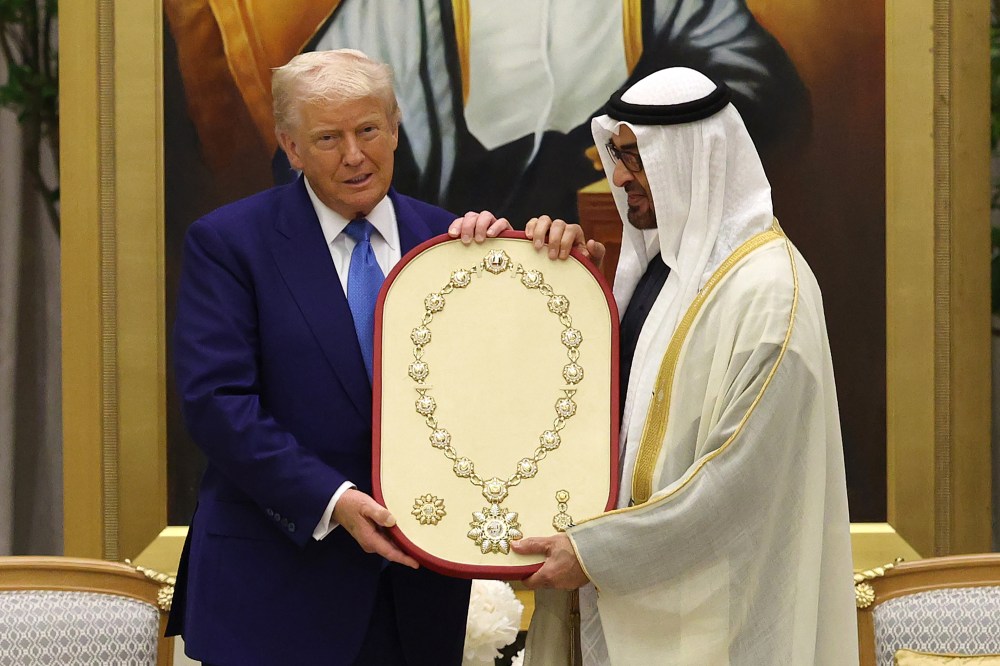


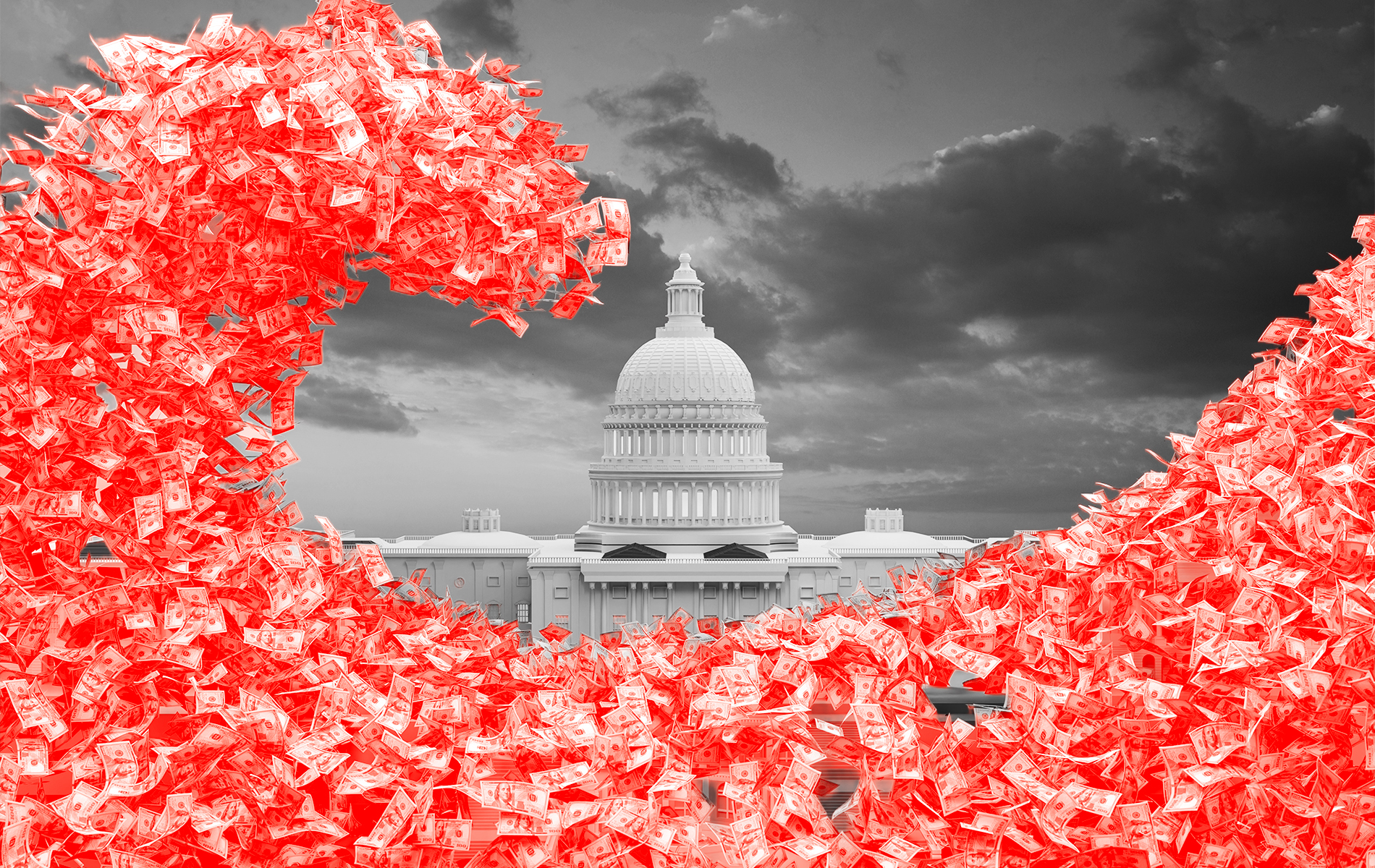




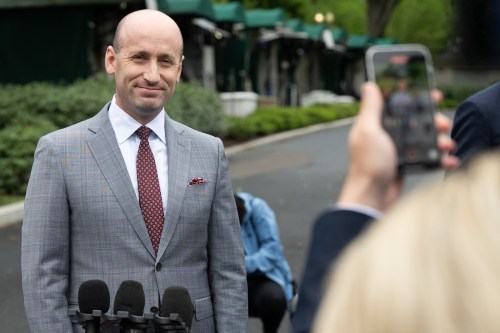
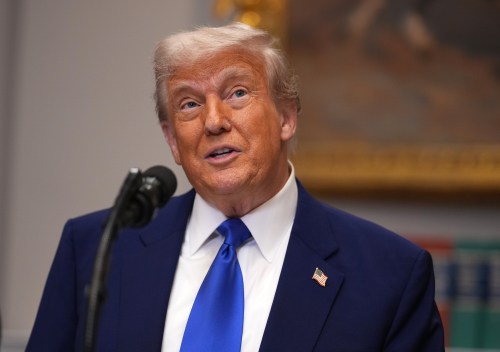

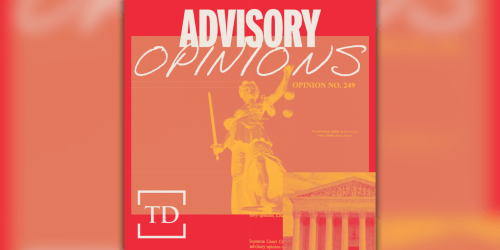
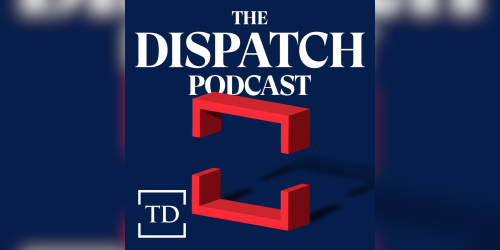





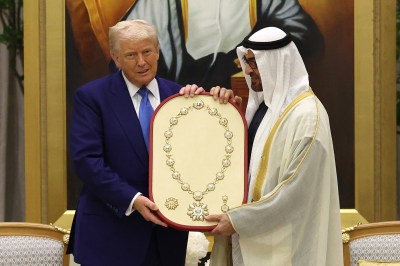
Please note that we at The Dispatch hold ourselves, our work, and our commenters to a higher standard than other places on the internet. We welcome comments that foster genuine debate or discussion—including comments critical of us or our work—but responses that include ad hominem attacks on fellow Dispatch members or are intended to stoke fear and anger may be moderated.
With your membership, you only have the ability to comment on The Morning Dispatch articles. Consider upgrading to join the conversation everywhere.